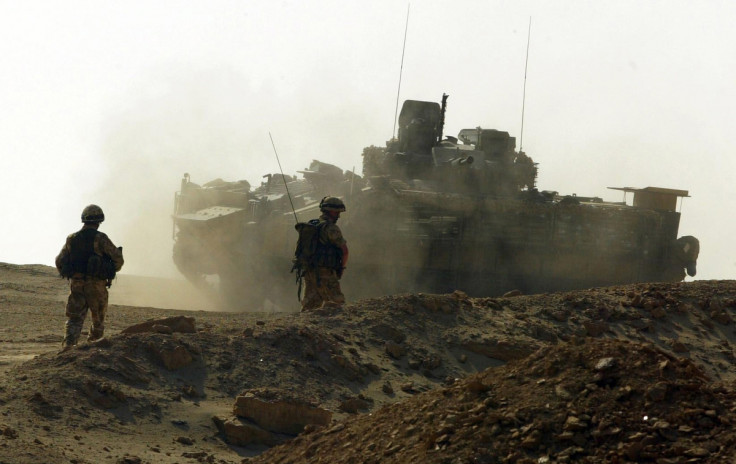Three British soldiers may face trial over death of Iraqi teenager
Three men may face trial after a teenage Iraqi boy drowned after the soldiers ordered him into a canal.

Three UK service men may undergo trial for the death of an Iraqi teenager, which happened in May 2003 after an inquiry has been held by the Iraqi Fatalities Investigations. One of the service men was a decorated major.
The Iraq Historic Allegations Team (IHAT) is carrying the enquiry forward. A spokesperson told The Telegraph: "We have referred three individuals to the Service Prosecution Authority (SPA). The referral asks the SPA to consider prosecution in relation to the death of a civilian Iraqi male, who drowned in May 2003. It is now up to the SPA to consider all of the evidence gathered by Ihat investigators and make a decision." IHAT is also conducting 1500 investigations involving British troops against Iraqi civilians.
Hilary Meredith, a lawyer of the major, told Telegraph: "It is a disgrace. The death was investigated by the military, the case against the major dropped in 2006 and he was cleared." The men who still serve the army were told that they might still stand trial over the death of the teenager, Ahmed Jabbar Kareem Ali. The soldiers forced the teenager to go into a canal, in Shatt Al Basra, Iraq which he later drowned in.
The soldiers arrested Ali and three other teenagers on suspicion of looting. They were then driven in an armoured vehicle to a canal and were later told to swim in - at gunpoint.
"This was a grave incident for which we are extremely sorry," the ministry said in a statement.
The method of punishment the service men used is well known within the army. It is called 'Wetting'. To gather evidence of this method of torture two other cases have been used as an example.
One of the men who was also told to swim by the soldiers said in the police report : "We were dropped near AaI-Zubair bridge and ordered to swim in Shatt AI-Basra which I did and so did Ahmad Jabbaar Kareem but as we got into deep water Ahmad Jabbaar, was not able to swim and he drowned, and I did not find him while struggling to save myself from drowning where I was in the water. Then the patrol left the site of the incident and on the next day I informed his father of what happened".
IHAT was set up in 2010 by the British government to investigate the crimes committed by British soldiers during the Iraq war. It has been announced that it will be closing down after the government has announced that it will no longer be receiving public money for ongoing cases. It was investigated for 18 months by the Legal Aid.
The Iraq Fatality Investigations, a judicial body created to provide accountability of soldiers' actions, states that when Iraqi police are not present the British troops must intervene and act as police.
An MoD spokesman told The Guardian: "This was a grave incident for which we are extremely sorry. We are committed to investigating allegations of wrongdoing by UK forces and will use Sir George's findings to learn lessons to help ensure nothing like this happens again."
"We are committed to investigating allegations of wrongdoing by UK forces and will use Sir George's findings to learn lessons to help ensure nothing like this happens again", added the MoD spokesperson. Previously in 2006 the soldiers were told that they were being charged for manslaughter, but were later dismissed as not guilty. Sir George Newman is the surveillance commissioner of the Iraq Fatality Investigations.
A second report will be published at a later date, revealing more details.
© Copyright IBTimes 2025. All rights reserved.



















